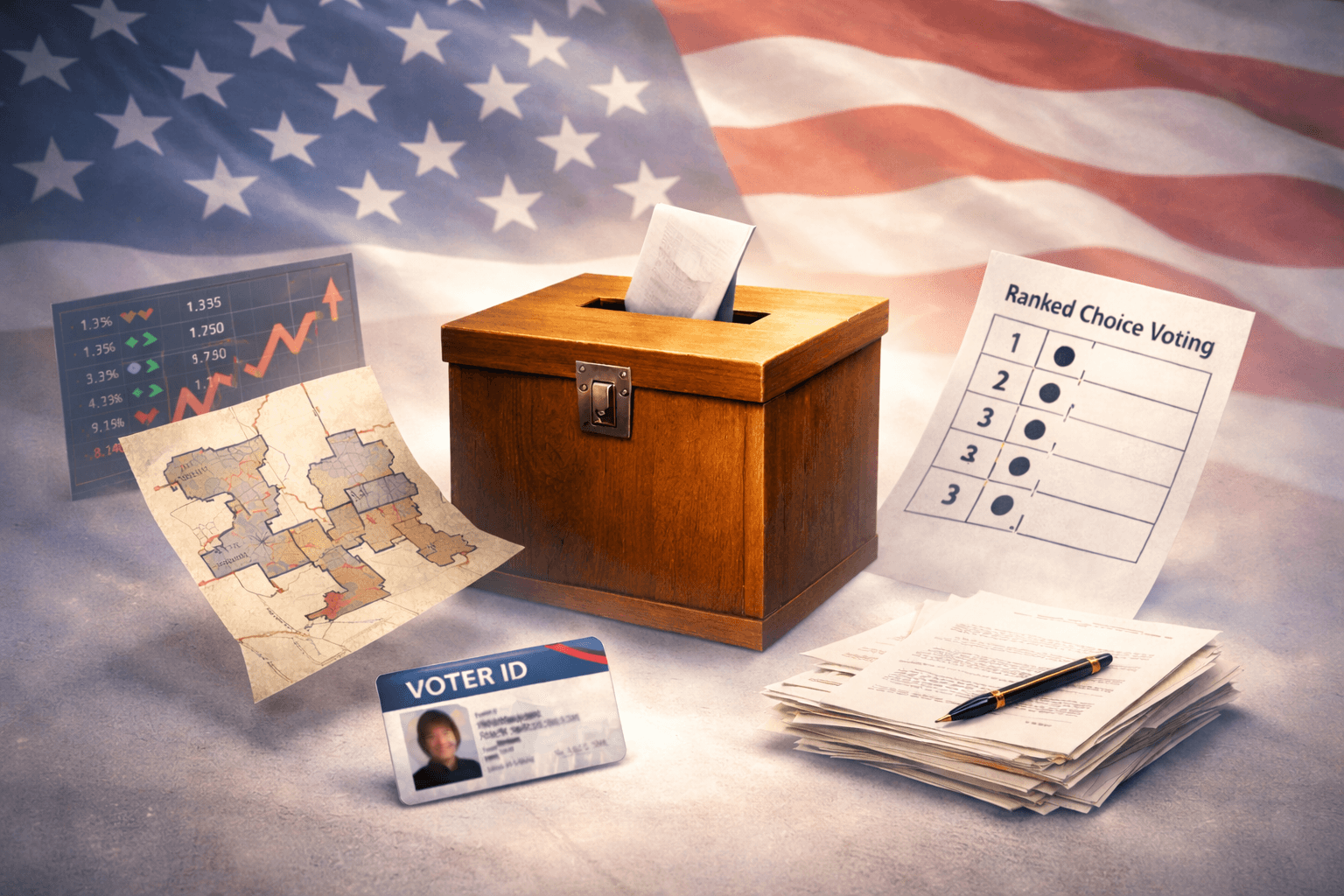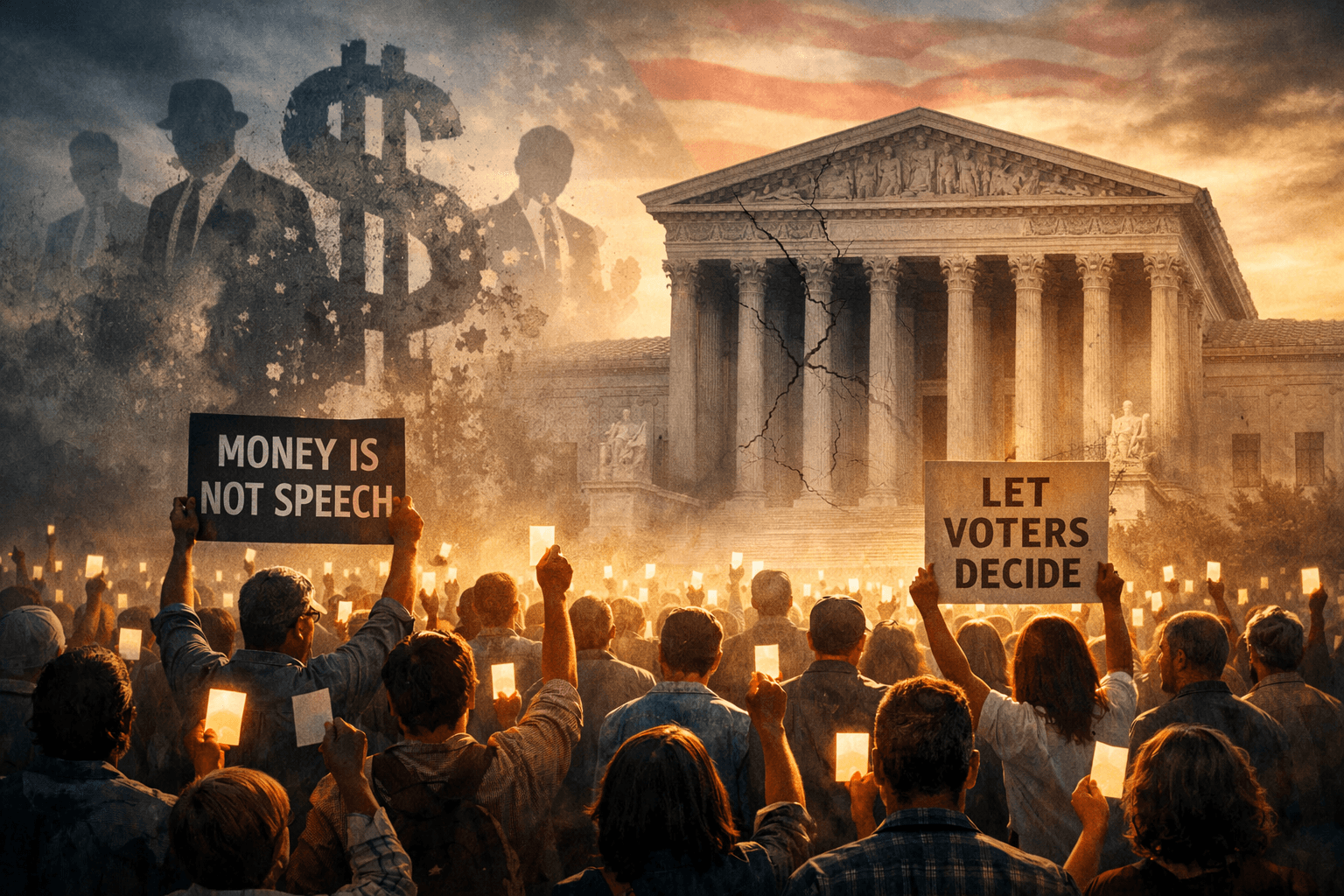The Skeevy Tactics Both Parties Have Used to Take Voters' Money

Photo Credit: Giorgio Trovato on Unsplash
If the 2024 presidential election follows recent trends, it will be the most expensive campaign finance cycle in modern US history with figures that will likely ascend into the billions of dollars. And this has many voters concerned about the state of money in politics.
Over the last few years, reports from major news outlets like the Washington Post and calls for investigation into the biggest fundraising sources for the Republican and Democratic Parties have provided legitimacy to these concerns, but have gotten little attention in the mainstream media.
Just look at the parties’ biggest small donor vendors: ActBlue for the Democratic Party and WinRed for the Republican Party. These political action committees are described as conduits to funnel small donations from individual donors to candidates and campaigns.
Both have raised billions for partisan candidates and have been called out for controversial practices, like their policies on recurring donations and accusations of money laundering.
James O’Keefe Raises Money Laundering Allegations
In March 2023, independent journalist James O’Keefe posted a video for his newly-founded O’Keefe Media Group which specifically looked at irregularities in donations made to ActBlue. Thousands of small donations were allegedly assigned to voters who claimed not to make them.
O’Keefe raised the potential of a massive money laundering scheme in which donations were made under the identity of people who made a few small donations in the past in order to mask who was actually making the donations.
For example, he talked to one Maryland voter whose name came up in over 1,000 small donations to ActBlue for the 2022 election cycle that totaled nearly $19,000. He notes this means she would have had to donate 3 times a day every day of the year.
The voter said she donated to ActBlue a few times but knew for sure her donations didn’t equal that amount -- though she could not provide an answer as to how much over the months she had donated to ActBlue.
This didn’t just apply to ActBlue. O’Keefe released a similar video in November 2023 that looked at similar irregularities with WinRed’s donor history. Some of the amounts credited to individuals totaled hundreds of thousands of dollars over the span of 2-3 years, according to O’Keefe.
The people he interviewed repeatedly said that while they donated a few bucks here and there to these vendors, it didn’t come close to the numbers shown in the data he collected.
O’Keefe has a reputation for what is colloquially referred to as “guerilla journalism.” His tactics often blur (if not cross) the line of journalistic ethics, including using hidden cameras, embellishing stories, and using false identities to gain access to targets of his “stings.”
A piece from Maryland Matters says many of the claims O’Keefe made using data collected from “citizen journalists” is “difficult to independently recreate and appear to be overstated” partly due to double counting that occurs because of how federal regulators treat these donations.
The report further points out missing data and information from his ActBlue video, and that under current federal law, the data provided by O’Keefe is either exaggerated, misleading, or isn’t enough to prove something that goes as far as money laundering.
“When asked if the video provided the kind of evidence to suggest that a sophisticated money laundering scheme was taking place, [Campaign Legal Center Senior Vice President and Legal Director Adav] Noti said: ‘Not even remotely,’” Maryland Matters reports.
Noti said that the data shown in O’Keefe’s videos used such broad FEC searches that it doesn’t factor in variables like the inclusion of common names.
“[W]e would need to know a lot more about what he’s saying is a variation and what they did to determine that it is, in fact, the same person and not a different person,” he said.
"Because I will say that even for people who work with the data a lot that it is a very difficult thing to do — to figure out whether the contribution from John Smith in Annapolis at such-and-such address Annapolis, Maryland, is the same or different from John M. Smith, also in Annapolis, Maryland.”
However, O’Keefe’s report isn’t the only one to point to problems happening with ActBlue and WinRed or raise concerns over disclosure issues and untraceable and/or unknown recurring donations.
Are ActBlue and WinRed Used to Bypass Disclosure Requirements and Skirt Transparency?
The Courier-Press published a story in November 2023 that specifically looked at ActBlue’s involvement in the mayoral race in Evansville, Indiana. Investigative journalist Thomas B. Langhorne reports that ActBlue Indiana was “the largest source of campaign cash to Democrat Stephanie Terry's campaign.”
However, if anyone wanted to look specifically into the candidate’s donor reports, there would be no way to know who specifically donated through ActBlue. Donors use ActBlue to donate to a specific candidate, but the PAC’s donor report to the Indiana Secretary of State does not include which candidates they intended their money to go to.
All that is known is that Terry’s pre-election campaign finance report shows that she received 108 contributions totaling $78,550 through “ActBlue Indiana.”
The lack of transparency raises concern over who is actually donating money to these elections. Take Back Our Republic Action, a “"center-right group focused on the rules of elections," asserts that foreign actors could exploit vendors like ActBlue to influence elections because online platforms can make it easy for donations to come in from anywhere.
Further, Take Back criticizes the verification methods used in debit and credit card transactions. The group’s president, John Pudner, claims ActBlue does “not let their bank vendors verify credit card information to make sure it (the money) really is coming from the person who they claim it’s coming from.”
The Republican-controlled House Administration Committee opened an investigation in November 2023 to look into these claims that the verification methods used by ActBlue do not go far enough to protect US consumers and don't protect against foreign entities or individuals looking to insert themselves in domestic elections.
In the story that focused on the Evansville race, ActBlue submitted a statement that said "100% of ActBlue's credit and debit card transactions are bank-verified, we have a sophisticated security program, and we use an industry-standard predictive analytics tool to monitor donations for fraud."
This, however, does not address the underlying concern from many voters that donors outside their city, county, or state are funneling money into elections that don’t concern them. Where is the money coming from? Where is it going? Are there openings for manipulation?
These are fundamental questions that voters across the political spectrum want to know as it pertains to the flow of billions of dollars in US elections.
WinRed has had its own transparency issues. In 2022, the Campaign Legal Center filed a complaint with the FEC that the PAC did not properly disclose operating expenses. According to a report from OpenSecrets in July 2022:
“The self-described ‘#1 fundraising technology used by conservative’ reported less than $2,700 in operating expenses since January 2019 despite processing over $2.8 billion in earmarked contributions – and $212 million in contribution refunds – during that period, according to the Campaign Legal Center complaint. WinRed raised over $2.2 billion during the 2020 election cycle and $806.4 million so far this cycle, OpenSecrets data shows.”
The operating expenses reported seem odd when compared to ActBlue, which processed more than $5.5 billion in the same time period and reported over $85 million in operating expenses.
University of Texas McCombs School of Business election law specialist Tim Werner said, “It’s not an issue of ideology. It just sounds like an incredible grift, lining the pockets of unknown companies & at the cost of candidates who don’t know what this conduit is doing with their money.”
Werner is correct. This issue is not about ideology. Both sides should be held to account for any potential violations of law, any disregard for consumer protections, and any concerns over ethical standards and observance of regulations and campaign finance rules.
The problem is few that operate within the machineries of the US political and media industries are willing to look at the big picture. The Huffington Post will publish stories that target WinRed. Fox News will publish stories that target ActBlue. House Republicans will launch investigations into ActBlue. Democratic officials will probe WinRed.
An issue that so many US voters are worried about is – like so many things – used as a political weapon to serve the interests of one side of the aisle or the other. At least O’Keefe’s videos were willing to look at irregularities that exist with the fundraising giants of both major parties.
Many Donors Don’t Realize They Are Signing Up for Recurring Donations
One thing that can be said for O’Keefe’s investigation is that it gets people thinking about a tactic both ActBlue and WinRed have used to maintain an uninterrupted flow of money: Making recurring donations a default option that often goes unnoticed by donors – especially the elderly.
It is not uncommon for political groups to use a pre-checked box for recurring donations. But with ActBlue and WinRed, the issue of unwanted donations is so pervasive that the FEC asked Congress to do something about it in its 2022 legislative recommendations.
“Commission staff are regularly contacted by individuals who have discovered recurring contributions to political committees have been charged to their credit card accounts or deducted from their checking accounts,” the FEC stated.
“In many cases, the contributors do not recall authorizing recurring contributions. Often, these contributors have attempted unsuccessfully to cancel the recurring transactions with the political committee prior to contacting FEC staff.”
Congress has yet to act on the matter.
In 2021, 4 states opened inquiries into the use of recurring donations by ActBlue and WinRed: New York, Minnesota, Maryland and Connecticut. The attorneys general of these states sent letters to both PACs asking for documents on the practice.
WinRed attempted to block the inquiries through legal action, but the courts rejected the PAC’s lawsuit on the grounds that states can adopt and enforce their own consumer protection laws – which Minnesota AG Keith Ellison used to look into WinRed’s practices.
The problem was so bad in the last presidential election cycle that it resulted in staggering refunds in 2020. The Trump campaign was forced to refund more than $122 million to WinRed donors, which amounted to over 10% of money raised. Biden’s campaign refunded 2.2% of online donations raised.
Vox reported that ActBlue phased out the use of the pre-checked box for recurring donations ahead of the 2022 midterms, and a casual glance through WinRed’s donation options shows that it too may not be relying on it as much in 2024.
However, voters should still be cautious and look out for deceptive tools like pre-checked boxes that are designed to trick people into making certain choices. James O’Keefe may not have hard evidence to support claims of money laundering, but he talked to voters who had no idea how much money they were giving to partisan vendors.
There are many voters who may, by one means or another, be influenced to give more money than they intended, and they may not even realize they were tricked.
Election cycles are a desperate time for the Republican and Democratic Parties. The stakes for winning rise every year, as does the need to win. Everything is a contest between the parties, especially who can raise the most money for their campaigns.
 Shawn Griffiths
Shawn Griffiths







